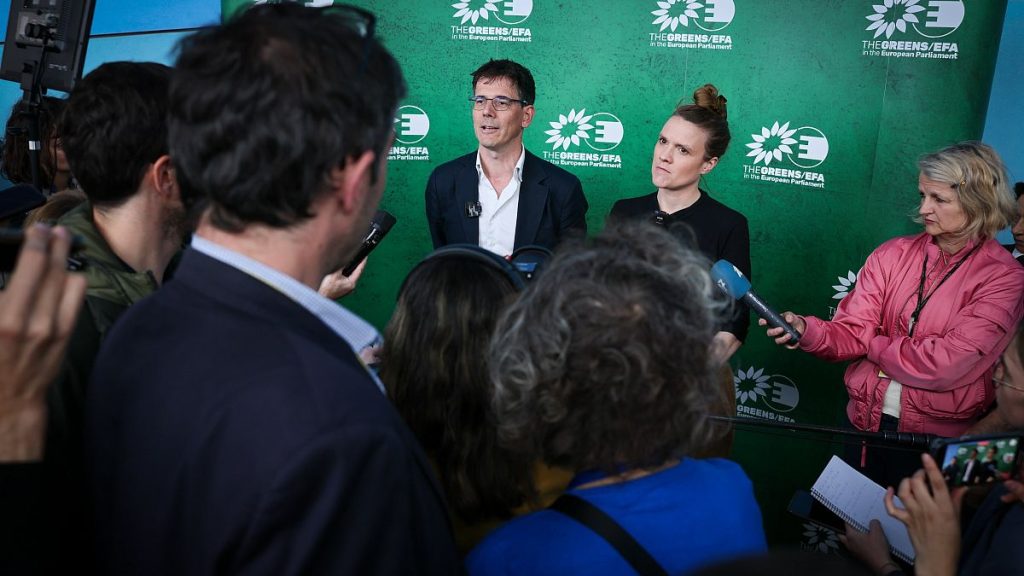The new leadership of the Greens group at the European Parliament, consisting of German MEP Terry Reintke and Dutch lawmaker Bas Eickhout, has expressed willingness to support Ursula von der Leyen’s bid for the EU Executive but is seeking clarity from the largest group, the centre-right wing European People’s Party (EPP), on the future of the Green Deal. They believe that the EPP is divided on the issue of the Green Deal and want this ambiguity to be resolved before engaging in coalition talks to support von der Leyen’s candidacy for the European Commission presidency. Additionally, the Greens insist that cooperation with the far-right must be off the table during negotiations.
The new co-presidents of the Greens/EFA group are approaching potential coalition talks with a constructive spirit but have outlined clear red lines that they will not cross. They are open to negotiations with other parties beyond the EPP and have already initiated conversations with different groups. They also emphasized the need for any coalition agreement to be in written form to ensure clarity and transparency in the coalition’s objectives and priorities. The Greens believe that their coalition should also be open to other pro-European groups to prevent a shift towards the right in the European Parliament.
Amidst discussions about coalition building, the Greens have highlighted the importance of the continuation of the Green Deal, which is a key priority for their party. They have expressed concern about the EPP’s mixed messages regarding the Green Deal, citing instances where party representatives have both supported and backtracked on the policy. The co-presidents emphasized that the Green Deal is a red line for the Greens and must be a central focus in any coalition agreement. They urge the EPP to clarify their stance on the Green Deal before engaging in negotiations.
The Greens have warned against potential cooperation with the far-right, citing past mistakes made by the EPP in misjudging leaders such as Viktor Orban in Hungary. They want to ensure that any coalition they form does not involve collaboration with far-right parties, and they have made this a non-negotiable red line in their discussions. The Greens are approaching coalition talks with a pragmatic attitude but are clear about their priorities and values that they will uphold during negotiations.
The co-presidents of the Greens/EFA group have also highlighted the support they have received from socialists, who have given clear messages regarding their desire to have the Greens in the majority. They believe that the priorities of the socialists align with theirs to a large extent, making them potential partners in coalition talks. The Greens are confident in their ability to engage in discussions with other groups and are optimistic about the possibility of forming a coalition that reflects their values and priorities. They are committed to approaching negotiations with a constructive spirit while upholding their red lines.
In conclusion, the new leadership of the Greens/EFA group at the European Parliament is positioning itself as a key player in coalition talks for the upcoming legislative term. They are seeking clarity from the EPP on the future of the Green Deal and are emphasizing the importance of this policy as a red line in any potential coalition agreement. They are open to negotiations with other parties and are approaching discussions with a constructive spirit, while maintaining clear red lines related to the Green Deal and cooperation with the far-right. The Greens are optimistic about the possibility of forming a coalition that reflects their values and priorities, and are committed to ensuring transparency and clarity in any agreement reached.













